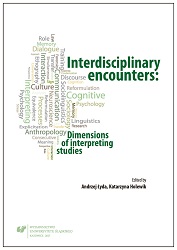PEACE in interpreter-mediated investigative interviews – working together to achieve best evidence
PEACE in interpreter-mediated investigative interviews – working together to achieve best evidence
Author(s): Katarzyna Holewik
Subject(s): Language studies, Language and Literature Studies, Theoretical Linguistics, Philology
Published by: Wydawnictwo Uniwersytetu Śląskiego
Keywords: investigative interviewing; PEACE; interpreter-mediated police interviews; cooperation; principles of investigative interviewing; PACT
Summary/Abstract: It is widely known that investigative interviews are fundamental and most prevalent law-enforcement activities and are considered to be “the major fact-finding method police officers have at their disposal when investigating crime” (Schollum 2005: 3). What is more, it is often stated that quality interviews can ensure quality investigations and that is why many police officers undergo training in investigative interviewing. There is no doubt that the interview needs to be as accurate, reliable and effective as possible and in the case of monolingual interviews this success largely depends on factors such as interviewing techniques and strategies, strength of evidence, access to legal advice or an interviewer’s attitude to name but a few (St-Yves and Deslauriers-Varin 2009).However, in bilingual interviews, there is one more critical factor which may have an impact on the confession process of a suspect or obtaining a credible statement from a witness, namely, the presence of an interpreter.Drawing on the PEACE model for investigative interviewing and the seven principles ofinvestigative interviewing in England and Wales, the chapter aims at mapping the PEACE model into interpreter-mediated interviews and examining factors and concepts necessary for effective interpreter-mediated interviews. The intention of this chapter, which reviews literature on investigative interviewing as well as public service interpreting, is to identify and illustrate shared principles and behaviour between both participants of the communicative event (i.e., interviewers and interpreters) suggesting that both of them work towards the same goal – obtaining best evidence, and also to argue that it is through professionalism, awareness and understanding, cooperation, and trust (PACT) that they can achieve it.
Book: Interdisciplinary encounters: Dimensions of interpreting studies
- Page Range: 78-103
- Page Count: 26
- Publication Year: 2017
- Language: English
- Content File-PDF

